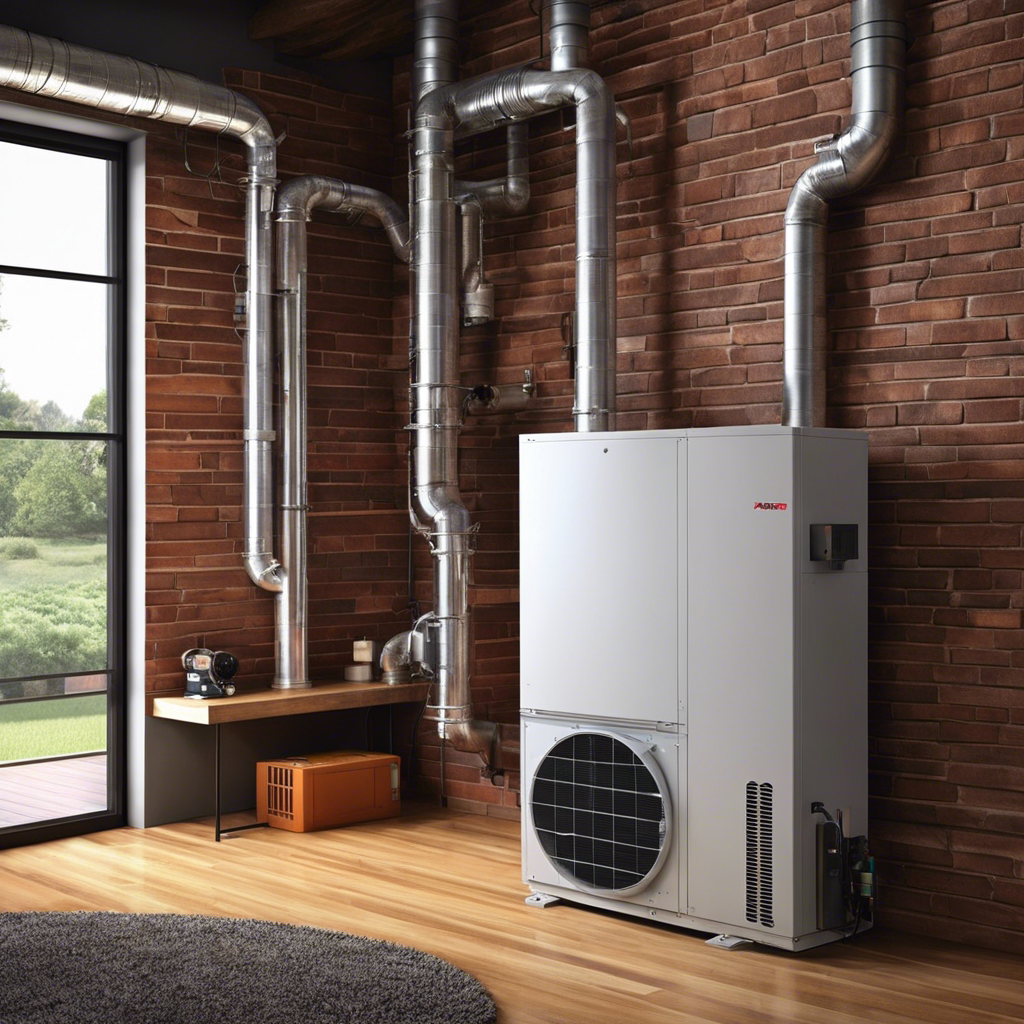So, you’re in the market for a new HVAC system in Tulsa. Well, lucky for you, there are a variety of fuel options to choose from. From the ever-popular natural gas to the trusty propane and even electricity, the possibilities are endless.
But which one is the right fit for your needs? That’s where this discussion comes in. We’ll take a closer look at the pros and cons of each fuel option, considering factors such as availability and cost.
So sit tight, because by the end of this, you’ll have a much clearer picture of which fuel will keep you comfortable all year round.
Key Takeaways
- Natural gas and propane are highly efficient and cost-effective fuel options for HVAC systems in Tulsa.
- Both options produce more heat per unit of fuel compared to other alternatives, reducing energy consumption and utility bills.
- Propane burns cleaner than oil, resulting in lower emissions, while natural gas and propane have a lower environmental impact with fewer greenhouse gas emissions.
- Electricity is a reliable and widely used fuel option, offering high efficiency, precise temperature control, and advancements in renewable energy sources make it a sustainable choice.
Natural Gas
When considering fuel options for HVAC systems in Tulsa, natural gas is a highly efficient and cost-effective choice.
Natural gas is known for its energy efficiency, as it produces more heat per unit of fuel compared to other options. This means that you can enjoy a comfortable indoor environment while minimizing your energy consumption and reducing your utility bills.
Additionally, natural gas has a lower environmental impact compared to coal or oil. It produces fewer greenhouse gas emissions, which helps in preserving the environment and reducing your carbon footprint.
Propane
Propane is a versatile and reliable fuel option for HVAC systems in Tulsa. When comparing propane to oil, there are several benefits that make propane a superior choice.
Firstly, propane burns cleaner than oil, resulting in lower emissions and a reduced impact on the environment. Additionally, propane is more efficient, providing better heating performance and saving you money on your energy bills.
Propane is also readily available, making it a convenient option for homeowners in Tulsa. Unlike oil, propane doesn’t require a storage tank on your property, eliminating the risk of leaks or spills.
Furthermore, propane is a safer fuel option, as it has a higher ignition temperature and is less likely to cause a fire or explosion.
Electricity
Electricity is a reliable and widely used fuel option for HVAC systems in Tulsa. These systems are designed to operate with high efficiency, reducing energy consumption and ultimately lowering utility bills. Electric HVAC systems offer precise temperature control, ensuring optimal comfort levels in your home or office. From an environmental standpoint, electricity is a cleaner fuel option compared to traditional fossil fuels like propane. By using electricity to power your HVAC system, you can significantly reduce your carbon footprint and contribute to a healthier environment. Advancements in renewable energy sources have made electricity an even more sustainable choice. So, if you’re looking for an efficient and environmentally-friendly fuel option for your HVAC system, electricity is the way to go.
Availability and Cost
The availability and cost of fuel options for HVAC systems in Tulsa are important factors to consider when making a decision for your home or office. To determine the most suitable fuel option, it’s crucial to conduct an efficiency comparison and assess the environmental impact.
When it comes to availability, natural gas is widely accessible in Tulsa, making it a popular choice. It offers a cost-effective solution due to its abundance and low prices.
However, electricity is also readily available and offers the advantage of being a clean source of energy. While electricity may have higher upfront costs, it can provide long-term savings through energy efficiency.
Additionally, renewable energy sources such as solar power are becoming increasingly accessible and cost-effective, offering a sustainable alternative with minimal environmental impact.
Frequently Asked Questions
Are There Any Alternative Fuel Options for HVAC Systems in Tulsa Besides Natural Gas, Propane, and Electricity?
You won’t believe the wide array of alternative fuel options available for your HVAC system in Tulsa! In addition to natural gas, propane, and electricity, you can explore options like biodiesel and geothermal. When it comes to efficiency comparison, it’s essential to consider factors like cost and environmental impact.
What Are the Environmental Impacts of Using Different Fuel Options for HVAC Systems in Tulsa?
When considering the environmental impacts of different fuel options for HVAC systems in Tulsa, it’s essential to explore alternative options. Evaluating their effects is crucial for finding a sustainable solution that meets your heating and cooling needs.
Can I Switch Between Different Fuel Options for My HVAC System in Tulsa Without Making Significant Modifications or Replacements?
You can switch fuel options for your HVAC system in Tulsa without significant modifications or replacements. It’s a cost-effective solution that allows you to adapt to changing energy demands and reduce environmental impacts.
Are There Any Government Incentives or Rebates Available for Choosing Certain Fuel Options for HVAC Systems in Tulsa?
There are government incentives and rebates available for choosing certain fuel options for HVAC systems in Tulsa. You can take advantage of these incentives to make your system more energy-efficient and cost-effective.
How Do Fuel Prices and Availability Affect the Overall Cost of Operating HVAC Systems in Tulsa?
You can save money by considering fuel prices and availability when operating your HVAC system in Tulsa. Fluctuating fuel prices can impact your overall cost, while limited fuel availability can lead to higher expenses.


